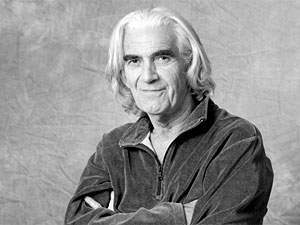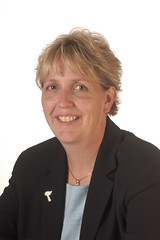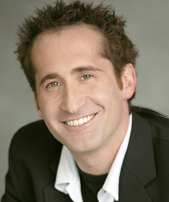Aging Services: It Has to Be the No Spin Zone
Can’t we just spin' our way out of this?That might be the question on the minds of some of the nursing home operators that were named today as 'the nation’s poorest performing nursing homes' by The Centers for Medicare & Medicaid Services (CMS).The answer is NO, and it’s an especially LOUD NO when you’re caring for fellow human beings.Some people like to talk about getting 'spin doctors' to help them in a crisis. Spin is simply another word for deception. And the 'doctors' who practice it shouldn’t be allowed to operate.We live in a world run by imperfect human beings. Crises, mistakes and bad news hit the best of organizations; And what the best of organizations have in common when such a situation hits is: They don’t SPIN. Rather they take some seemingly simple steps in what can be very difficult, embarrasing situations:1. They go right to work to identify and fix the problem.2. They learn from mistakes so that they’re not repeated.3. They communicate openly and honestly.4. They become a better organization and build even stronger trust with the people who rely on them.Some crisis situations are complex; how we respond to them shouldn’t be.Posted by Eric Schubert, Director of Communications
Coach Broyles' Playbook for Alzheimer’s Caregivers
 Southeastern Conference football legend, Frank Broyles of the Arkansas Razorbacks (and current Arkansas athletic director) has created a new playbook, and it has nothing to do with football. It’s called 'Coach Broyle’s Playbook for Alzheimer’s Caregivers.' The guidance in the 92-page book is based on experience. Broyles and his family were caregivers for his late wife Barbara who had Alzheimer’s. He takes a person-centered approach to his book, not a medical-centered one, stressing doing things with a loved one with Alzheimer’s or dementia, not for them.You can obtain a free copy at the Alzheimer’s Association site here or download its contents here.
Southeastern Conference football legend, Frank Broyles of the Arkansas Razorbacks (and current Arkansas athletic director) has created a new playbook, and it has nothing to do with football. It’s called 'Coach Broyle’s Playbook for Alzheimer’s Caregivers.' The guidance in the 92-page book is based on experience. Broyles and his family were caregivers for his late wife Barbara who had Alzheimer’s. He takes a person-centered approach to his book, not a medical-centered one, stressing doing things with a loved one with Alzheimer’s or dementia, not for them.You can obtain a free copy at the Alzheimer’s Association site here or download its contents here.
A New Look at Aging on the Guthrie Stage
 Photo by Mike Habermann It’s interesting how increasingly we’re seeing more positive lights shined on aging and doing it well … gracefully … successfully … vitally or -- insert your adverb here.In Minneapolis this week, British actor Charles Keating, is starring at The Guthrie Theater in a one-person show called 'I and I: The Sense of Self.' His work, which features insights from Yeats to Einstein, takes a new look at aging, doing it well and the wisdom that comes with growing old.You can hear a short interview with Keating on Minnesota Public Radio here. He has a cool anecdote about how he came up with the I and I name while on a trip to Jamaica. A Jamaican friend told him 'what you do to me, you also do to yourself … you see man, we are both human beings, I and I.'
Photo by Mike Habermann It’s interesting how increasingly we’re seeing more positive lights shined on aging and doing it well … gracefully … successfully … vitally or -- insert your adverb here.In Minneapolis this week, British actor Charles Keating, is starring at The Guthrie Theater in a one-person show called 'I and I: The Sense of Self.' His work, which features insights from Yeats to Einstein, takes a new look at aging, doing it well and the wisdom that comes with growing old.You can hear a short interview with Keating on Minnesota Public Radio here. He has a cool anecdote about how he came up with the I and I name while on a trip to Jamaica. A Jamaican friend told him 'what you do to me, you also do to yourself … you see man, we are both human beings, I and I.'
Brand Building: 5 Tips for an Effective Name Change On Any Size Budget
People often talk about changing one’s brand name as being a scary process. It shouldn’t be. It should get the blood pumping and veins jumping - kind of like swimming in Lake Superior.  You want a name where you’re proud to show your face when you say it. Obviously the person pictured here isn’t very proud of the place he works for. Pride is critically important in all professions, but especially in such customer-service intensive ones, such as aging services and senior housing.As part of our transformation work, we’ve experienced a number of name changes over the last couple of years. For example, Ecumen changed its name from the Board of Social Ministry three years ago. Two Ecumen communties recently changed their long-standing names: Parmly Senior Housing and Services became Parmly LifePointes and Mankato Lutheran Homes became Pathstone Living.Change is good.Here are a 5 tips for changing a name and doing it well - even if you have a small budget: 1. Find Out What People Think of You: Before you do anything, hold a series of feedback sessions/focus groups with several groups important to your organization’s success - customers, employees, donors, community leaders, people who don’t know you but who you would like to know you. How do they perceive you? Are they hearing what you want your brand to communicate? Find out.2. Identify the Gaps Between Perception and Reality: Your research should tell you where you’re falling short in communicating your brand. This helps open the door to potential themes that your name/and or tagline will help convey.3. Develop a Story: Determine the story you want to tell. Good names should have stories bolstering them that tie to the work of the organization. For example, the name Ecumen comes from the word Ecumenical, which is derived from the Greek word for 'Home.' Our promise at Ecumen is to 'create home for older adults wherever they choose to live.' Names without stories are just letters on a sign.4. Brainstorm and Test: Throw all kinds of stuff against the wall. At this stage, anything is possible. Assemble a group of people who aren’t as close to the project as you are -- test several names with them. What do they think?5. Draw the Picture and Go Tell The World Your New Name (And Story): Assuming you now have a name that people are warming up to, get a designer and have them draw the logo. At the same time, develop your rollout plan for telling the world your new name, but more importantly the story behind that name.We’d love to hear your naming tips.
You want a name where you’re proud to show your face when you say it. Obviously the person pictured here isn’t very proud of the place he works for. Pride is critically important in all professions, but especially in such customer-service intensive ones, such as aging services and senior housing.As part of our transformation work, we’ve experienced a number of name changes over the last couple of years. For example, Ecumen changed its name from the Board of Social Ministry three years ago. Two Ecumen communties recently changed their long-standing names: Parmly Senior Housing and Services became Parmly LifePointes and Mankato Lutheran Homes became Pathstone Living.Change is good.Here are a 5 tips for changing a name and doing it well - even if you have a small budget: 1. Find Out What People Think of You: Before you do anything, hold a series of feedback sessions/focus groups with several groups important to your organization’s success - customers, employees, donors, community leaders, people who don’t know you but who you would like to know you. How do they perceive you? Are they hearing what you want your brand to communicate? Find out.2. Identify the Gaps Between Perception and Reality: Your research should tell you where you’re falling short in communicating your brand. This helps open the door to potential themes that your name/and or tagline will help convey.3. Develop a Story: Determine the story you want to tell. Good names should have stories bolstering them that tie to the work of the organization. For example, the name Ecumen comes from the word Ecumenical, which is derived from the Greek word for 'Home.' Our promise at Ecumen is to 'create home for older adults wherever they choose to live.' Names without stories are just letters on a sign.4. Brainstorm and Test: Throw all kinds of stuff against the wall. At this stage, anything is possible. Assemble a group of people who aren’t as close to the project as you are -- test several names with them. What do they think?5. Draw the Picture and Go Tell The World Your New Name (And Story): Assuming you now have a name that people are warming up to, get a designer and have them draw the logo. At the same time, develop your rollout plan for telling the world your new name, but more importantly the story behind that name.We’d love to hear your naming tips.
Who is an Older Person You are Thankful For?
As 'Changing Aging’s' writers go on a sabbatical this week to prepare turkey and stuffing, we want to turn the writing over to you:
Who is an older person you are thankful for this Thanksgiving Week? Or, tell us why you are thankful for older people.
Please share your thoughts here at 'Changing Aging' in the comments section below this post.
Is or was that person a great mentor, teacher, friend, or someone who just made you feel good? Why are you thankful for that person? What is so special about the elders in our life?
Young Love Vs. Old Love
Kate Zernike of The New York Times has a fascinating article as a follow up to the Sandra Day O’Connor story we blogged about last week. The Times' story 'Still Many Splendored: Love in the Time of Dementia' sheds new light on love in old age. Here’s an excerpt:Former Justice Sandra Day O’Connor’s husband, suffering from Alzheimer’s disease, has a romance with another woman, and the former justice is thrilled €” even visits with the new couple while they hold hands on the porch swing €” because it is a relief to see her husband of 55 years so content.What culture tells us about love is generally young love. Songs and movies and literature show us the rapture and the betrayal, the breathlessness and the tears. The O’Connors’ story, reported by the couple’s son in an interview with a television station in Arizona, where Mr. O’Connor lives in an assisted-living center, opened a window onto what might be called, for comparison’s sake, old love.Of course, it illuminated the relationships that often develop among Alzheimer’s patients €” new attachments, some call them €” and how the desire for intimacy persists even when dementia steals so much else. But in the description of Justice O’Connor’s reaction, the story revealed a poignancy and a richness to love in the later years, providing a rare model at a time when people are living longer, and loving longer.“This is right up there in terms of the cutting-edge ethical and cultural issues of late life love,” said Thomas R. Cole, director of the McGovern Center for Health, Humanities and the Human Spirit at the University of Texas, and author of a cultural history of aging. “We need moral exemplars, not to slavishly imitate, but to help us identify ways of being in love when you’re older.”Historically, love in older age has not been given much of a place in culture, Dr. Cole said. It once conjured images that were distasteful or even scary: the dirty old man, the erotic old witch.That is beginning to change, Dr. Cole said, as life expectancy increases, and a generation more sexually liberated begins to age. Nursing homes are being forced to confront an increase in sexual activity.And despite the stereotypes, researchers who study emotions across the life span say old love is in many ways more satisfying than young love €” even as it is also more complex, as the O’Connors’ example shows.Read the full article here.
The Millenials, The Age Wave and How We Work
 Posted by Robin Krause, Vice President of Human Resources At Ecumen, like most companies, our workforce is made up of multiple generations. We often talk about the impact that 78 million baby boomers will have on the workforce as they age. Boomers make up the largest portion of Ecumen’s 4,000-member team, just over a quarter. But almost just as large are the Millennials, those born between 1980 and 1995. There are 80 million Millennials in the U.S.I enjoyed watching this recent 60 Minutes segment on the Millennials. Do you think its depiction of Millennials is accurate? Another question: Do you think the retirement of baby boomers is going to have a huge impact on the workplace, or do you think that is largely overblown? Share your thoughts.We’re developing a workforce planning tool that will break down the demographics of each of our work sites and allow us to model what the future will look like, especially as boomers hit their retirement years. Have you heard of companies that are examining what their demographic future is going to look like so that they can plan ahead and not find themselves short on experience and skills? We’d love to hear about such examples.
Posted by Robin Krause, Vice President of Human Resources At Ecumen, like most companies, our workforce is made up of multiple generations. We often talk about the impact that 78 million baby boomers will have on the workforce as they age. Boomers make up the largest portion of Ecumen’s 4,000-member team, just over a quarter. But almost just as large are the Millennials, those born between 1980 and 1995. There are 80 million Millennials in the U.S.I enjoyed watching this recent 60 Minutes segment on the Millennials. Do you think its depiction of Millennials is accurate? Another question: Do you think the retirement of baby boomers is going to have a huge impact on the workplace, or do you think that is largely overblown? Share your thoughts.We’re developing a workforce planning tool that will break down the demographics of each of our work sites and allow us to model what the future will look like, especially as boomers hit their retirement years. Have you heard of companies that are examining what their demographic future is going to look like so that they can plan ahead and not find themselves short on experience and skills? We’d love to hear about such examples.
![]() If you’re ever looking for a speaker on this generational topic, I’d suggest checking out David Stillman, a generational expert, who we’re fortunate to have serving on our board of trustees. A Gen Xer, he’s a fantastic speaker and author of the book: When Generations Collide: Who They Are. Why They Clash. How to Solve the Generational Puzzle at Work.
If you’re ever looking for a speaker on this generational topic, I’d suggest checking out David Stillman, a generational expert, who we’re fortunate to have serving on our board of trustees. A Gen Xer, he’s a fantastic speaker and author of the book: When Generations Collide: Who They Are. Why They Clash. How to Solve the Generational Puzzle at Work.
In Sickness and In Health, Until Death Do Us Part
Former Supreme Court Justice Sandra Day O’Connor brought a great deal of awareness to breast cancer when she went public with her story. Today she’s shedding new light on Alzheimers disease and caregiving. Her husband, who was diagnosed with Alzheimers 17 years ago, has moved into an assisted living community in Arizona for memory care. He’s also begun an intimate relationship with a girlfriend, who also has Alzheimers. It’s a heartwarming, and likely very difficult story to tell of a family who adores a father and a husband and want to see him happy. If you get a moment, watch the story here at MSNBC.I’m curious if any of you have heard or experienced a similar story?
Changing Aging and Back to the Classroom
Could you see yourself doing a completely different job when you retire than the one you’re currently doing? Many boomers in our Age Wave study said they’ll be doing something very different when they hit their 'third age.'In Maryland and California, they’re connecting the generations by bringing seniors and baby boomers back to the classroom as paid teachers or volunteers. You can read more at this stateline.org story.According to stateline.org, California Gov. Arnold Schwarzenegger this summer launched a statewide program that partners with high-tech companies to recruit, train and place retiring employees in the state’s public schools. Virginia and other states use federal money to train retirees for volunteer work in classrooms and with students who need extra help. A similar program in Maryland has has improved teacher retention, raised student scores and boosted the overall health of the senior volunteers.Nationwide, public schools are expected to lose about a million teachers over the next decade, according to the National Commission on Teaching and America’s Future. What an opportunity to tap new sources of expertise in new ways.
An ELCA Senior Housing Partnership
 The Minneapolis Star Tribune had a nice article yesterday on Luther Park, a senior housing development that we are very excited to be part of in Sandpoint, Idaho. The first project of its kind in Idaho, it’s a great example of collaboration among Evangelical Lutheran Church in America (ELCA) partners to help people live for a lifetime in communities that they love.First Lutheran Church of Sandpoint will be the owner of Luther Park which will be physically connected to First Lutheran Church. Ecumen will develop and manage it. The Mission Investment Fund of the ELCA is the primary financing partner, and Thrivent also contributed financing. Pastor Dave Olson is the visionary behind the project and bringing the various ELCA partners together to make it a reality.Below is the Star Tribune story:Sandpoint, Idaho, has become one the most desirable retirement destinations for active seniors. At the base of the Selkirk Mountains and just south of the Canadian border it provides scenic beauty, outdoor recreation and an arts community.Shoreview-based Ecumen, one of the country’s largest nonprofit senior housing services and development companies, was also attracted to the area.It joined with First Lutheran Church of Sandpoint and other Evangelical Lutheran Church in America partners to break ground on Idaho’s first catered living senior housing development in Sandpoint.Called Luther Park at Sandpoint, it will be connected to First Lutheran Church of Sandpoint and will open in November of 2008.Ecumen’s development plans integrate independent living with a suite of assisted-living services on one site. The catered living design allows seniors to be as independent as possible in a community they were drawn to, while providing assisted-living and memory-care services when needed.The apartments include one- and two-bedroom floor plans and common areas will include a grand fireplace gathering area, library and media center, community meeting rooms, a salon and barber shop and outdoor walking paths.
The Minneapolis Star Tribune had a nice article yesterday on Luther Park, a senior housing development that we are very excited to be part of in Sandpoint, Idaho. The first project of its kind in Idaho, it’s a great example of collaboration among Evangelical Lutheran Church in America (ELCA) partners to help people live for a lifetime in communities that they love.First Lutheran Church of Sandpoint will be the owner of Luther Park which will be physically connected to First Lutheran Church. Ecumen will develop and manage it. The Mission Investment Fund of the ELCA is the primary financing partner, and Thrivent also contributed financing. Pastor Dave Olson is the visionary behind the project and bringing the various ELCA partners together to make it a reality.Below is the Star Tribune story:Sandpoint, Idaho, has become one the most desirable retirement destinations for active seniors. At the base of the Selkirk Mountains and just south of the Canadian border it provides scenic beauty, outdoor recreation and an arts community.Shoreview-based Ecumen, one of the country’s largest nonprofit senior housing services and development companies, was also attracted to the area.It joined with First Lutheran Church of Sandpoint and other Evangelical Lutheran Church in America partners to break ground on Idaho’s first catered living senior housing development in Sandpoint.Called Luther Park at Sandpoint, it will be connected to First Lutheran Church of Sandpoint and will open in November of 2008.Ecumen’s development plans integrate independent living with a suite of assisted-living services on one site. The catered living design allows seniors to be as independent as possible in a community they were drawn to, while providing assisted-living and memory-care services when needed.The apartments include one- and two-bedroom floor plans and common areas will include a grand fireplace gathering area, library and media center, community meeting rooms, a salon and barber shop and outdoor walking paths.

